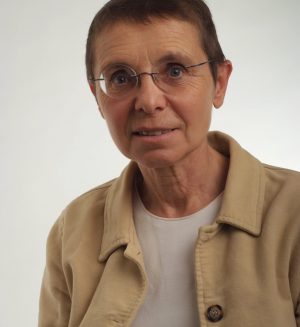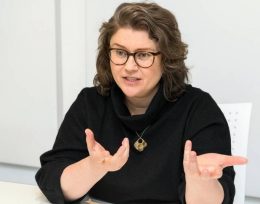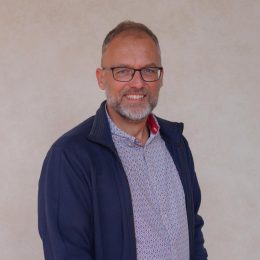
MARIE DURU-BELLAT
Questioning social justice with pupils, at school, in society and in the global world
In the sociological field, justice issues in school are predominantly confined to the analysis of social inequalities of achievement. So doing, one focuses on what is an important function of school, promoting social mobility or, on reverse, social reproduction. However, schooling has another very important role, educating young generations, so that they share common values and be prepared to become the citizens we wish for our country and for tomorrow. In this presentation, we will start from pupils’ conceptions of fairness to discuss the values school may promote in the present global context, the focus being put on cosmopolitanism. We will underline that school has specific to do so.

RUTH MULLER
Adverse Childhood Experiences: A Site for Novel Encounters between Biological Research and Educational Justice?
Adverse childhood experiences (ACEs) have become a topic of public and scientific attention in recent years. ACEs denote a range of negative experiences in early life, from sexual abuse to emotional neglect, that are thought to impact health and well-being over the life course. The term was coined in the CDC-Kaiser-ACE study, an epidemiological study that asked 17,000 adults about ACEs and their current health. Shortly after the study was published in 1998, the US CDC deemed ACEs the most important predictor of life course health. However, it is only recently that ACEs feature more prominently in scientific and public discourses, including in education. In this talk I present 1) a brief history of the ACEs concept and how it came to be linked to neuroscience and epigenetics in recent years and 2) a case study of novel, social justice-oriented practices in schools and juvenile correctional settings in the Pacific North-West of the United States that have emerged in relation to ACEs. In my presentation I will pay specific attention to notions of resilience that has gained prominence in recent years in relation to ACEs and critically discuss this turn, particularly with regard to important differences between individualist and community-oriented notions of resilience. For this talk I draw on work that has been jointly conducted and published with Prof. Dr. Martha Kenney at San Francisco State University.

SOBHI TAWIL
Renewing the social contract for education to ensure just and sustainable futures
We are at a critical juncture in global development. Climate change, the upsurge of violent conflict, democratic backsliding and regression in human rights are threatening our shared futures. These challenges to social cohesion and to sustainable development are further compounded by technological innovation which is outpacing our capacity to regulate it for the common good. We face an urgent choice between continuing on an unsustainable path, or radically changing course. Education is key to changing course and shaping alternative futures. Yet, it cannot be the same education characterized by a dual crisis of equity and relevance. Indeed, despite undeniable progress in expanding educational opportunity worldwide over the past decades, access to and participation in education remains incomplete and inequitable. And where access is near universal, our educational models and approaches often contribute to unsustainable social, economic, and environmental development patterns. If we are to ensure more just and sustainable futures, we need to renew the social contract for education, rebalancing our relationships with each other, with nature, as well as with technology.

HERMAN VAN DE WERFHORST
The societal tasks of schooling: qualification, allocation, and socialisation in comparative perspective
Education has several functions for societal needs: it needs to educate students well in terms of skills and qualifications (the qualification function), it needs to promote a smooth transition from education to the labour market (the allocation function), and it needs to socialize students into society at large, for instance by improving knowledge on and commitment to institutions and politics (the socialization function). Moreover, for all these functions one can have multiple distributional concerns, in particular efficiency and/or equality. In this talk, I highlight how educational systems vary significantly between societies, and how features of educational systems are related to realizing the outcomes under consideration. By using comparative and longitudinal data on schooling, labour market, and civic engagement outcomes, I conclude that educational policy makers face trade-offs when they want to optimize the functioning of educational systems. While some policies may be positively associated with certain outcomes, other outcomes may in fact be harmed. One example is the vocational education and training (VET) sector: a strong VET sector improves the school-to-work transition, but it also magnifies inequalities in civic and political engagement between education groups.

AGNES VAN ZANTEN
Education-based mobility in the 21st century: Barriers and opportunities in a market-based meritocracy
Using data from a recent qualitative study of the trajectories and experiences of beneficiaries of a positive discrimination scheme developed by a French prestigious higher education institution, this presentation will explore the main features of education-based social mobility in a market-based meritocracy. Whereas in the membership-based meritocracy that prevailed until the 1980s, the cultural fractions of the upper classes could impose their own views of merit on dominated social and ethno-racial groups, the later presently face new representations of merit espoused by the now dominant economic fractions of the upper classes. The presentation will compare the barriers but also the small opportunities offered to members of dominated groups within these two social models and examine who are the contemporary winners and losers among them. It will also provide further analysis of the changing meaning of the concept of equality of opportunity.
Agnès van Zanten is a Senior research professor working for the Centre National de la Recherche Scientifique (CNRS) at the Centre for Research on Social Inequalities of Sciences Po, Paris. She is interested in class-based educational inequalities, elite education, transition to higher education, positive discrimination and widening participation in higher education and educational markets and policies. Her most recent books and edited collections in French and English are Sociologie de l’école. Sixth edition (with M. Duru-Bellat et G. Farges, A. Colin, 2022), Elites in education. Four volumes (Routledge, 2018), and Elites, Privilege and Excellence: the National and Global Redefinition of Educational Advantage (with S.J. Ball and B. Darchy-Koechlin, Routledge, 2015).